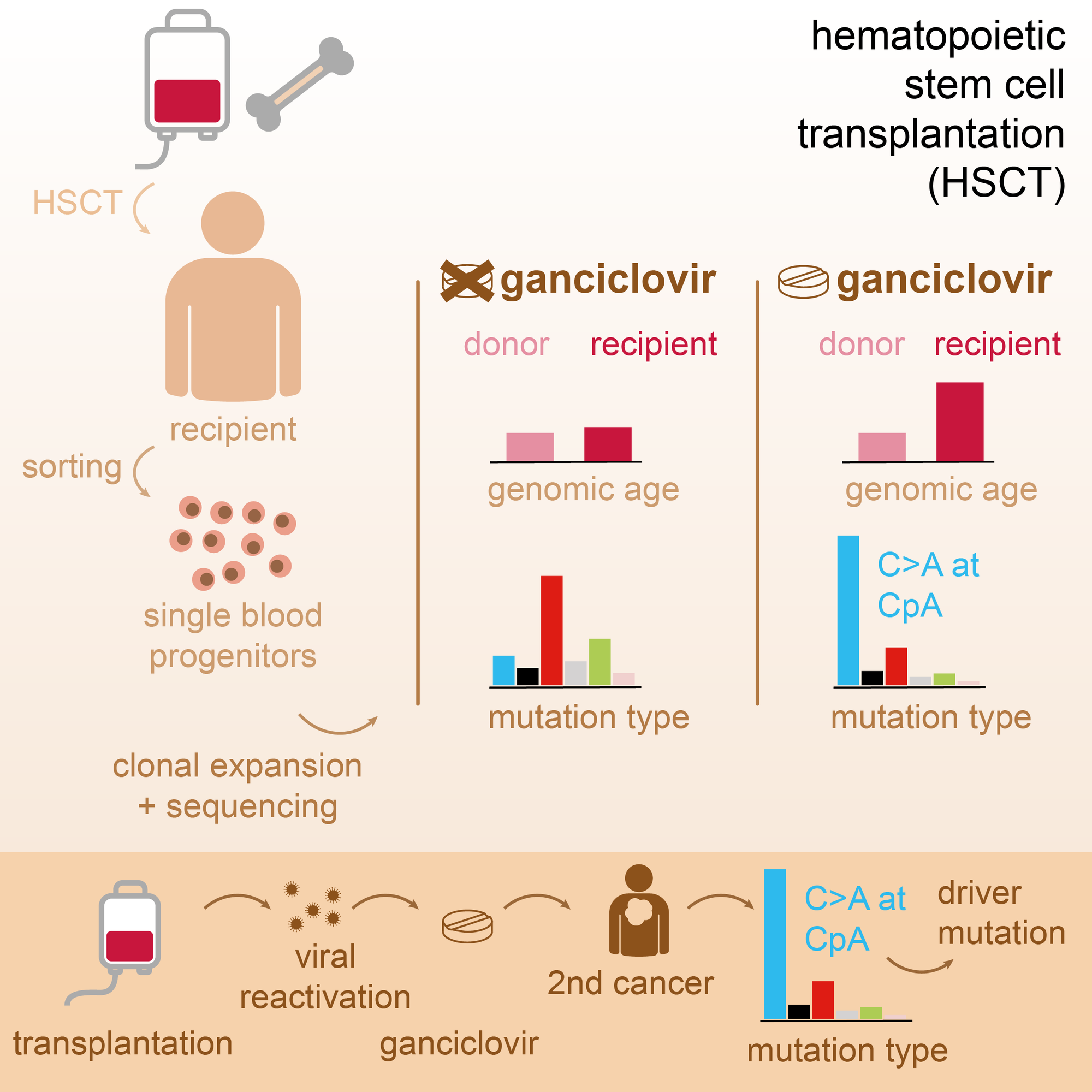Antiviral treatment causes a unique mutational signature in cancers of transplantation recipients

Jurrian K. de Kanter, Flavia Peci, Eline Bertrums Axel Rosendahl Huber, Anaïs van Leeuwen, Markus J. van Roosmalen, Freek Manders, Mark Verheul, Rurika Oka, Arianne M. Brandsma, Marc Bierings, Mirjam Belderbos, Ruben van Boxtel
Cell Stem Cell Sept 7 2021 DOI: https://doi.org/10.1016/j.stem.2021.07.012
Genetic instability is a major concern for successful application of stem cells in regenerative medicine. However, the mutational consequences of the most applied stem cell therapy in humans, hematopoietic stem cell transplantation (HSCT), remain unknown. Here we characterized the mutation burden of hematopoietic stem and progenitor cells (HSPCs) of human HSCT recipients and their donors using whole-genome sequencing. We demonstrate that the majority of transplanted HSPCs did not display altered mutation accumulation. However, in some HSCT recipients, we identified multiple HSPCs with an increased mutation burden after transplantation. This increase could be attributed to a unique mutational signature caused by the antiviral drug ganciclovir. Using a machine learning approach, we detected this signature in cancer genomes of individuals who received HSCT or solid organ transplantation earlier in life. Antiviral treatment with nucleoside analogs can cause enhanced mutagenicity in transplant recipients, which may ultimately contribute to therapy-related carcinogenesis.


